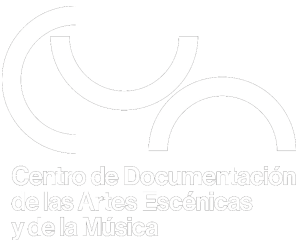'Unlawful song' (Registro nro. 122917)
[ vista simple ]
| 000 -LEADER | |
|---|---|
| fixed length control field | 02045nab a2200181 c 4500 |
| 001 - CONTROL NUMBER | |
| control field | myd_86474 |
| 003 - CONTROL NUMBER IDENTIFIER | |
| control field | ES-MaCDM |
| 005 - DATE AND TIME OF LATEST TRANSACTION | |
| control field | 20240917124638.0 |
| 008 - FIXED-LENGTH DATA ELEMENTS--GENERAL INFORMATION | |
| fixed length control field | 181003s2010 sp ||||fr 00| u|spa u |
| 040 ## - CATALOGING SOURCE | |
| Original cataloging agency | ES-MaCDM |
| 100 1# - MAIN ENTRY--PERSONAL NAME | |
| Personal name | Smith, Jeremy L. |
| 9 (RLIN) | 132029 |
| 245 0# - TITLE STATEMENT | |
| Title | 'Unlawful song' |
| Remainder of title | Byrd, the Babington plot and the Paget choir |
| Statement of responsibility, etc | SMITH, Jeremy L. |
| 260 ## - PUBLICATION, DISTRIBUTION, ETC. (IMPRINT) | |
| Date of publication, distribution, etc | 2010: |
| Name of publisher, distributor, etc | Oxford University Press, |
| Place of publication, distribution, etc | London; Oxford |
| 520 ## - SUMMARY, ETC. | |
| Summary, etc | RESUMEN: In late september 1586, Edward Barker ( a royal registrar who reported directly to te English Secretary of State, William Cecil) interrogated three suspected Catholic activists, including one singer, Henry Ediall. The interrogations were conducted in the wake of the Babington plot, an alleged assassination attempt on the life of Queen Elizabeth in which Mary, Queen of Scors, was found to be complicit. Barker questioned the men about their dealing whit the attainted exiled Catholic activist Charles Paget (and his brother Lord Thomas) and about their reactions to the government´s execution of Edmund Campion. Ediall was questioned too about a choral establishment he allegedly ran for tha Pagets and his performance of `direges´ at their residence. Under interrogation, Ediall, whon mentioned the music of Tallis and Byrd in his testimony, claimed that he had sung nothing unlawful. But a look into the repertory he alluded to in his testimony suggests he did sing works that would have been of interest to the government. In this article, which include full transcritions of these State Paper documents, the evidence of these interrogation and relevant musical works are analysed to draw new conclusions about the well-known ´political motets´ of Byrd, shedding fresh light on their legal status, how the could be put to use in a politically charged environment. Keysword: William Byrd; Thomas Tallis; Charles Paget; politics and music; motet; Babington plot |
| 773 0# - HOST ITEM ENTRY | |
| Title | Early Music |
| Host Biblionumber | 72886 |
| Record control number | myd_16029 |
| Relationship information | Vol. 38, núm. 4,Nov. 2010, p. 497 |
| 903 ## - LOCAL DATA ELEMENT C, LDC (RLIN) | |
| a | 86474 |
| b | 86474 |
| 942 ## - ADDED ENTRY ELEMENTS (KOHA) | |
| Koha item type | Artículos de revista |
No hay ítems disponibles.

